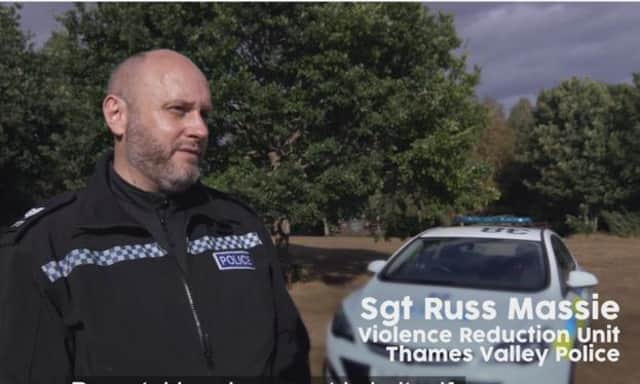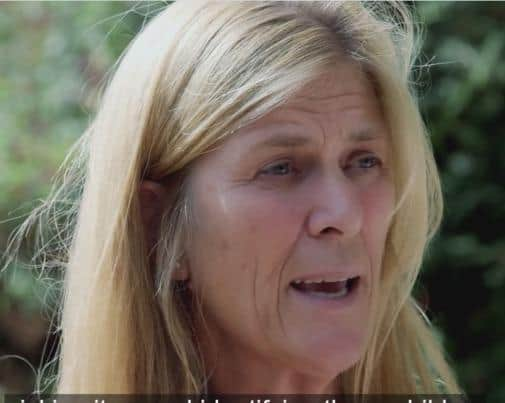Pilot offers Banbury families help from day one after a parent is sent to prison


Thames Valley Police is hoping to expand the system in which families are offered specialist support and mentoring for children affected by a parent being given a jail term, from the day of the sentence.
Banbury is one of a number of areas where the system is being tested.
Advertisement
Advertisement
The force has produced a video in a bid to spread the word about Operation Paramount – which aims to gather information from various datasets to allow an approach to be made to the family, offering quick connection to organisations such as Children Heard and Seen (CHAS) which offers individual support and mentoring to children whose parent has ‘disappeared’ from their lives.


The benefits of having help from that early point are invaluable to the parent at home but especially to the children who are innocent and often bewildered.
Sgt Russ Massie of Thames Valley Police said parental imprisonment is a source of trauma to children.
"The problem we've got at the moment is that we don't know which children and how many children are actually affected by parental imprisonment because there is no statutory database. There is no automatic referral pathway.
Advertisement
Advertisement
“Operation Paramount allows us to use data that is already available in an innovative and unique way to recognise and identify young people who may need support and then put that support in place to the family at the time they need it.
"Operation Paramount picks up information on the day the adult enters the criminal justice system. It allows us to compare that data to other datasets we have from the police and other partners and to recognise where the children are and offer that support."
One mum, who has received huge support from CHAS, said people being sent to prison should be asked if they have children at home so they are not abandoned.“I have two children aged nine and 10 and their dad is in prison,” she said. “I was left on my own with the two children. There was just nowhere we could go for support. No one came to us and asked if we needed anything.
"I was scared of facing the world because I was afraid of how people would treat me. I wish that when he'd gone, that someone had come to my door and told me that it wasn't my fault. Without support children are likely to blame themselves and they're either going to turn to criminality themselves, or just just become isolated and scared of the world."
Advertisement
Advertisement
Sarah Burrows, CEO of CHAS said: “Most people assume that if a parent goes to prison that there's some statutory mechanism picking it up, identifying these children and when necessary, giving support. And most people are surprised to hear that children aren't picked up. They could even be living alone; we've had experiences of that.
“This piece of work that the police are doing today will be groundbreaking in terms of understanding what the problem is, and understanding what solutions need to be there.”
Volunteer and project operator Leanne Manning said: “I think Operation Paramount is going to be really vital in these first steps in making that early identification. Some of the benefits can be that very first telephone conversation with the family when I tell them ‘you’ve got us now and we can be here for you’.
"There's a real lack of faith the in people around them, the systems, the people they have met, the police, the teachers - and so we have to rebuild that. We have to make sure that they to see the police in a positive light.”
Advertisement
Advertisement
Mr Massie said: “Once we've recognised where the child lives and who with, we then approach the family by telephone. We ask if it's okay for us to come and see them. We'll ask them whether they want us to come in uniform or not. We have local policing champions - Thames Valley Police officers who are child-centred and who understand these issues as well as I do - and we just visit the family.
"We go with kindness; we go with an offer of support. There is no pressure on families whatsoever. We will not refer anyone to CHAS or any other agency, unless the family has consented to that referral.
"If the offer of support is accepted, we'll make that referral there and then, or we'll leave details for them to refer themselves. That's it. At that point, the police move away and leave Children Heard and Seen to the amazing work they do with that family.
“That's as involved as the police need to be,” he said.
Ms Burrows said: “I think it's really important that children are identified and supported. It stops the intergenerational harm that goes on by parental offending. There needs to be simple support but there needs to be a support mechanism around the children.”
Advertisement
Advertisement
The mum of two said: “I think Operation Paramount is a great scheme as it's getting to the children faster then the two years my children and I had to wait. If Operation Paramount have been working then, we would have got help much sooner, and I wouldn't have had to go through those two years of feeling dread and blaming myself and hiding away from the world.”
To see the video click this link.